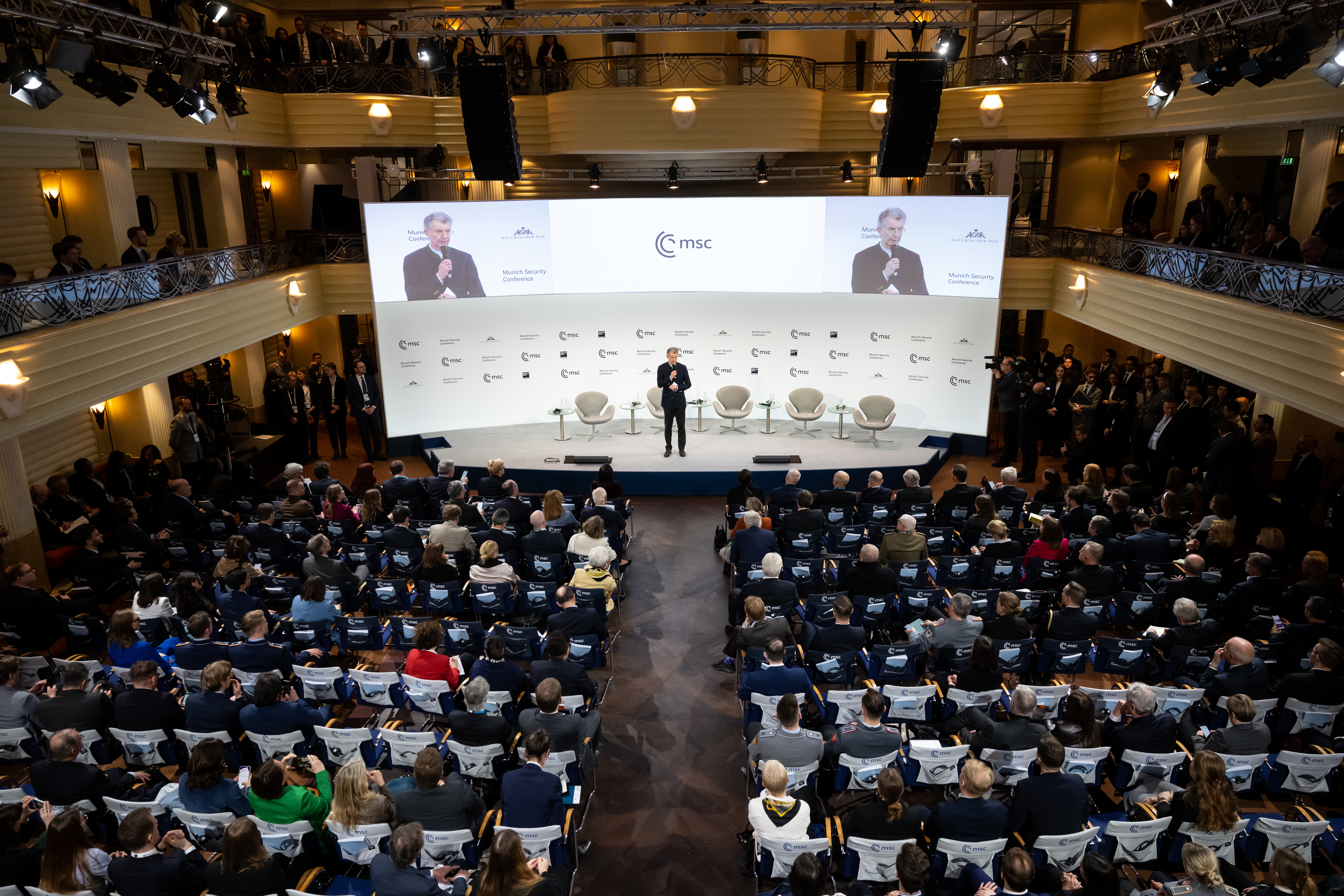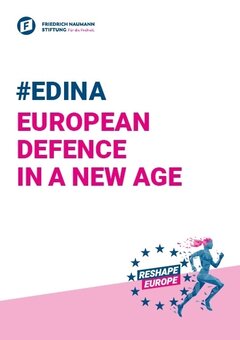Internationale Politik
Munich Security Conference - the Re:vision edition

Christoph Heusgen, Chairman of the Munich Security Conference, delivers his closing statement at the Security Conference
© picture alliance/dpa | Sven HoppeFrom Thursday evening to Sunday morning, Munich was once again the epicentre of the international security scene. The 59th Munich Security Conference (MSC) brought together political, military and business leaders from over 100 countries in the crowded Hotel Bayerischer Hof for a whirlwind programme of events, bilaterals and negotiations. The main theme for this year, “Re:vision”, addressed increasing revisionism by authoritarian states and growing competition between different visions for the international order.
On the guest list were delegations from all over the world, meeting in the spirit of the “Munich Rule”, which is to engage and interact and not lecture or ignore one another. However, not invited this year were the delegations from Russia, for the first time in two decades, and Iran. Given Russia’s invasion of Ukraine and Iran’s brutal crackdown of women-led protests, both countries have maneuvered themselves into a position where constructive international discussions are currently no longer possible.
Amid the flurry of diplomatic activity, there were several recurring themes throughout the discussions that will shape the next months of security planners in Europe and globally:
Ukraine takes the centre stage
Russia’s war on Ukraine was at the fore of the discussion at this year’s MSC. Ukrainian flags flew all around Munich, blue-and-yellow pins were abound and the Independence Monument on Maidan featured prominently on the cover page of the programme.
But it was not all symbolism. The Munich Security Report, which provides the analytical background to the conference, already placed the invasion of Ukraine on top of the agenda as a turning point in world politics. At the venue, Ukrainian politicians and activists were strongly represented in the discussions and the conference was opened with a video speech by Ukrainian President Volodymyr Zelensky.
This was in stark contrast with the 2022 edition, which happened just days before Russia’s full-scale invasion. At the time, Zelensky attended the MSC in person and, in what was probably his last public address in a suit and tie, unsuccessfully pleaded the West for increased support against the Russian aggression. The rest is history, unfortunately.
The strong display of support at this year’s conference was a sign that Ukraine’s allies will continue to stand by its side. German Chancellor Olaf Scholz emphasised this in his opening speech, as he said: “it is wise to be prepared for a long war and it is wise to give Putin the message that we are ready to stay with Ukraine”. This position was echoed by US Vice President Kamala Harris (“as long as it takes”) and French President Emmanuel Macron (“ready for a prolonged conflict”). As much as Vladimir Putin and his government would like Western public opinion to turn against support for Ukraine, there is no sign of this happening any time soon.
The transatlantic alliance is back
Another cross-cutting theme was the display of strong transatlantic unity. While the theme of the Munich Security conference only two years ago was “Westlessness”, meaning the absence of Western unity, this year was all about a unified Western front. Nothing unites more than a common enemy, and with common threats to freedom and the liberal world order and in turn a close cooperation in the support for Ukraine’s war efforts, the transatlantic alliance portrayed unity in threat perception and in acting together.
The importance of this year’s MSC for the transatlantic partnership was reflected in delegations travelling to Munich. The US entered with the largest Congressional delegation in the MSC’s history, along with the Vice President, the Secretary of State and the CIA Director. On the European side, all main players were present, with a prominent role for the EU institutions.
In the discussions, there was no more bickering about the need to increase European defence spending and doubts on the US commitment to European security. With European defence budgets rapidly increasing and the US being the biggest supporter of Ukraine’s war efforts, partners on both sides of the Atlantic are putting their money where their mouth is. This cleared the way for more constructive discussions on a range of issues affecting the transatlantic alliance, such as the increased production of defence equipment and the need for accountability for Russia’s crimes against humanity in Ukraine.
Keeping an eye out on China
Surprisingly, little focus was put on the Indo-Pacific and China, despite it being top priority to US foreign and security policy. In most conversations, the main theme remained Ukraine – for instance when Kamala Harris warned China not to provide lethal support to Russia in its war against Ukraine.
Nonetheless did the speech of China’s diplomatic representative Wang Yi provoke discussion well beyond the MSC. Two things in particular: when Wang announced China’s intent to initiate peace negotiations between Russia and Ukraine, and when he responded to a request for reassurance that China was not planning any immediate escalation against Taiwan — that “Taiwan is part of Chinese territory. It has never been a country and it will never be a country in the future.” These signals were undoubtedly picked up by the many leaders present and will surely feed into the different scenarios that they are preparing for.
If it was not already clear beforehand, this year’s MSC demonstrated one thing above all: the liberal world order continues to be under attack. But as Western allies came together, and increasingly sought to reach out to the global South, the contours of a global push-back are now more and more clear. Only with a global coalition of like-minded partners can we overcome the challenges of revisionist and authoritarian powers to the liberal world order. The MSC was therefore another call to invest in an alliance of liberal democracies.
Infobox: FNF Goes Munich
For the first time, the Friedrich Naumann Foundation officially took part in the Munich Security Conference and hosted three activities at, and at the fringes of, this year’s edition of the MSC. This included a Liberal Stammtisch, a public panel on European Autonomy versus Efficiency and an official MSC side event, discussing the parameters of a new European security architecture. In this side event, the results of a new FNF publication EDINA – European Defence in a New Age were critically discussed as well.


